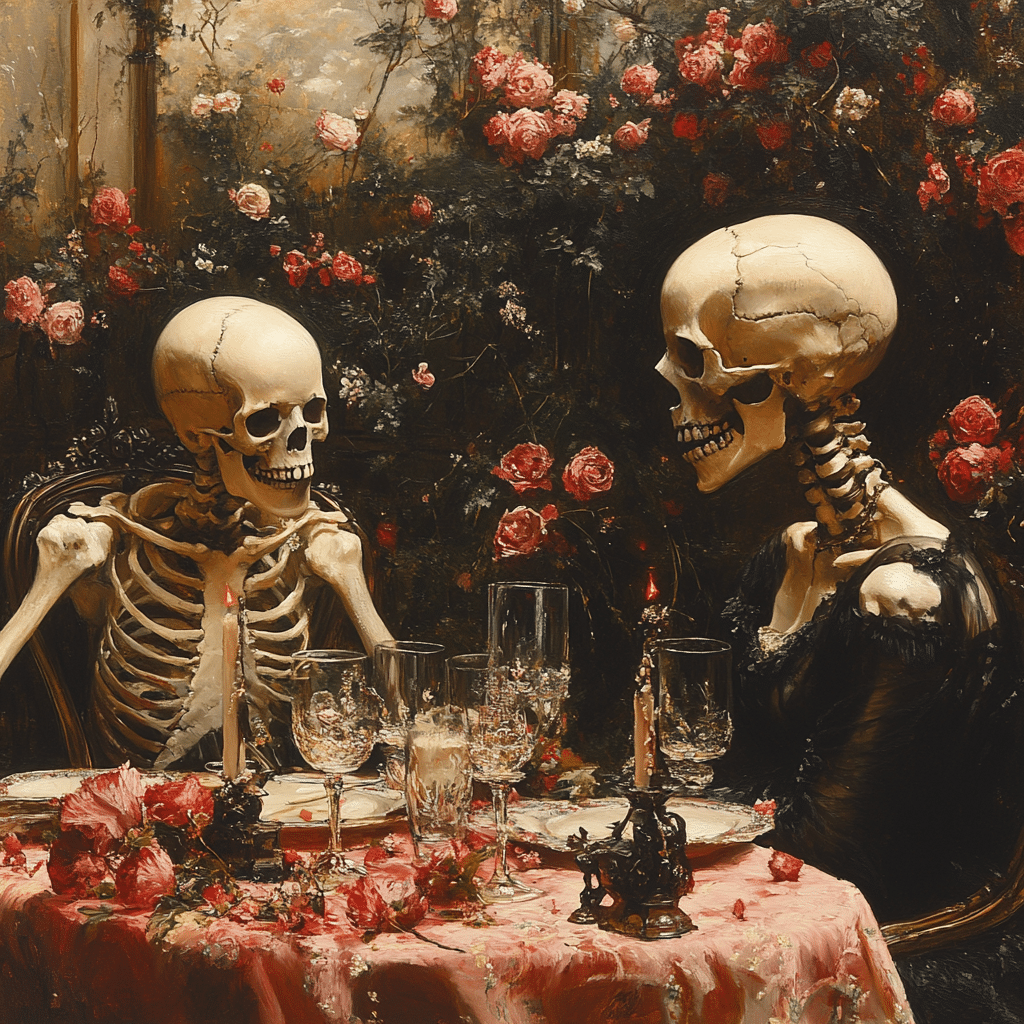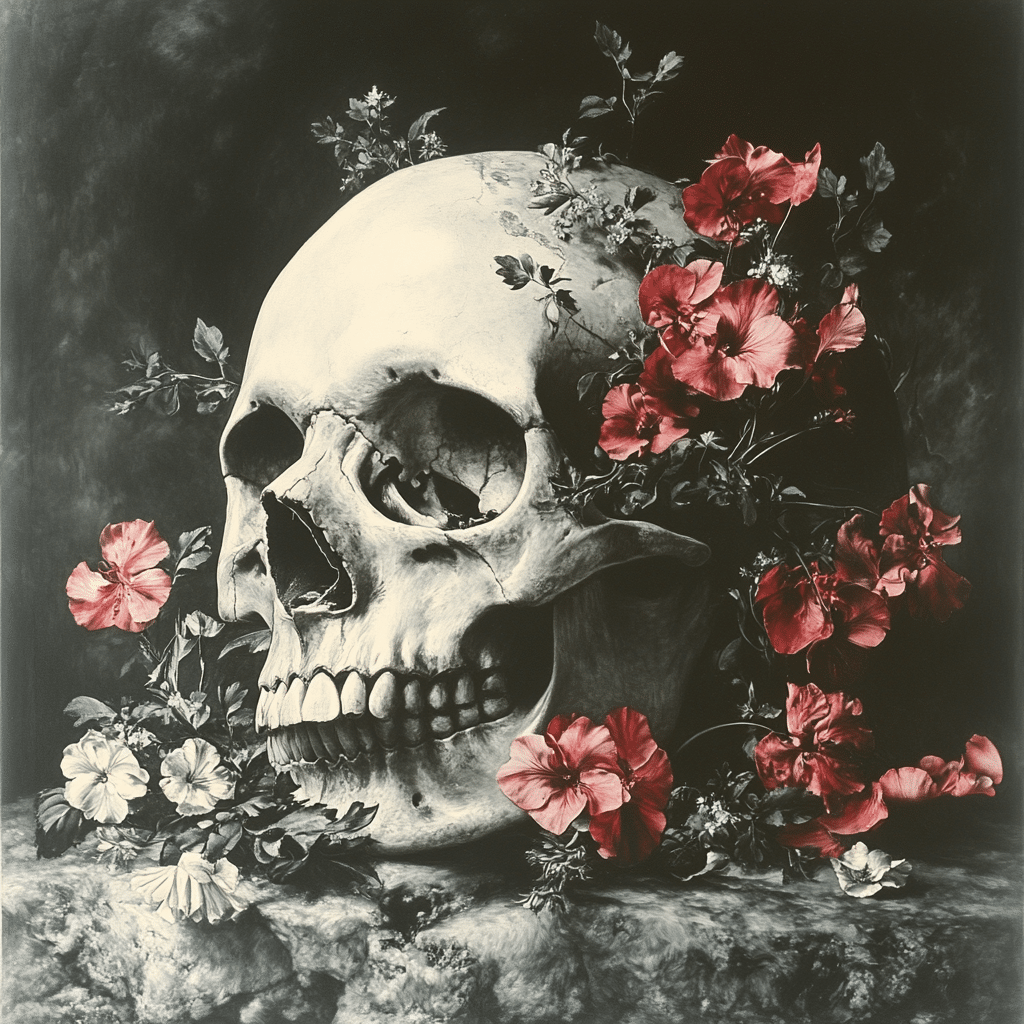Understanding the Significance of a Death Anniversary
A death anniversary, sometimes referred to as an ‘angelversary’ or ‘sadisversary,’ marks the date on which an individual passed away. Much like a birthday, it serves as an occasion to recognize someone’s life and the legacy they left behind.
Exploring Cultural and Religious Perspectives
Different cultures and religions have unique ways of observing death anniversaries. For instance, in Christianity, it’s common to hold memorial services, visit gravesites, and light candles in memory of the deceased. These rituals provide comfort and a sense of continuity.
In Hinduism, the death anniversary, known as “Shradh,” involves specific rituals like offering food to ancestors and reciting prayers to ensure peace for the departed soul. The ritual highlights respect, honor, and the ongoing connection between the living and their forebears.
Buddhism, on the other hand, emphasizes prayers and meditation to bring peace to the deceased’s soul. Observances can include chanting sutras and performing merit-making activities, such as donating to temples or charitable causes.
Each cultural and religious tradition underscores the importance of remembering the deceased and maintaining a connection through customs that have been passed down through generations. The significance lies not just in the sorrow of loss but in the celebration of a life well-lived.
Cherishing Memories: Personal Stories of Remembrance
Family Stories
Families around the world have their unique ways of honoring death anniversaries. Take, for instance, the Kennedy family, whose commemorations of President John F. Kennedy’s legacy show a deep sense of honor and respect. The family shares anecdotes, holds public ceremonies, and dedicates themselves to public service, reflecting JFK’s dedication to his country.
One touching story comes from Devon Green, who shares how his family gathers every year on his grandfather’s death anniversary. They recount stories, leaf through photo albums, and even cook his favorite dishes. These practices not only keep his memory alive but also strengthen family bonds.
Celebrity Tributes
Public figures have also taken to commemorating the death anniversaries of their loved ones in meaningful ways. Paul McCartney’s annual tribute to John Lennon is a prime example. Through social media posts and interviews, McCartney keeps Lennon’s legacy alive, ensuring his contributions to music and peace are remembered worldwide.
Similarly, Michelle Obama uses platforms like Instagram to honor her late father. Her heartfelt messages resonate with the public and highlight the importance of remembering those who significantly impacted our lives.

| Aspect | Details |
| Definition | A death anniversary, also called an ‘angelversary,’ ‘sadisversary,’ or ‘Remembrance Day,’ is the anniversary of someone’s death. |
| Purpose | To remember and honor a loved one who has passed, focusing on their life and legacy. |
| Heartfelt Statements | – “Holding you and all of your family members who are missing (loved one’s name) in my heart today.” |
| – “Remembering all the good times we shared with [loved one’s name].” | |
| – “Sending you love and strength during this difficult day.” | |
| Emotional Impact | The lead-up to the first anniversary may be particularly difficult as it brings back memories of the loss. |
| Traditions | – Visiting the grave or other places of remembrance |
| – Holding a memorial service or family gathering | |
| – Lighting candles, sharing stories, and looking at photos | |
| – Engaging in activities that the deceased enjoyed or valued | |
| Comparison to Birthday | Much like a birthday, it is used to recognize someone special, often celebrating their entire life rather than just focusing on their passing. |
| Names & Synonyms | Angelversary, Sadisversary, Death Day, Remembrance Day |
| Examples of Remembrance | – Planting a tree or garden in their memory |
| – Donating to a charity in their honor | |
| – Writing letters or journaling about them | |
| Date Examples | – “Jun 22, 2024” |
| – “May 24, 2023” |
Ways to Honor a Legacy: Creative and Meaningful Methods
Charitable Acts and Donations
One profound way to commemorate a death anniversary is through charitable acts and donations. Foundations like The Chadwick Boseman Foundation for the Arts exemplify this beautifully. Established in memory of the beloved actor, the foundation supports young artists, reflecting Boseman’s lifelong commitment to the arts and community.
Such charitable endeavors not only honor the deceased but also bring comfort to the grieving families, knowing their loved one’s legacy continues to make a positive impact on the community. These acts of kindness can assist enormously in the grieving process, turning sorrow into constructive action.
Memorial Events and Gatherings
Organized events, like memorial runs or walks, also serve as powerful ways to honor a loved one’s legacy. The Terry Fox Run stands out as an iconic example. Held annually, it brings together people worldwide to raise funds for cancer research, reflecting Fox’s dream of eradicating the disease.
Participating in these communal gatherings can provide psychological benefits. It offers a sense of solidarity, shared purpose, and a platform for collective healing. These events foster a community spirit, bringing people together in meaningful ways.
Navigating Emotions: Grief and Growth
Coping Mechanisms and Support Systems
Dealing with grief, especially on a death anniversary, can be challenging. Research and expert opinions suggest tools like therapy, support groups, and counseling can significantly aid in the healing process. Books like Joan Didion’s The Year of Magical Thinking offer profound insights on coping with loss.
Support systems, whether friends, family, or professional counselors, play a crucial role in navigating through the tumultuous emotions of grief. Engaging with others who understand your pain can provide comfort and a sense of belonging.
Personal Growth and Reflection
Adversity often acts as a catalyst for personal growth. Individuals like Sheryl Sandberg have shown resilience in the face of loss. After the unexpected death of her husband, Sandberg penned Option B, a book that explores finding joy and strength after hardship.
Personal reflection and growth can emerge from such deep sorrow. Using the experiences of loss to advocate for causes, support others, or engage in new endeavors can bring a new sense of purpose and meaning.

Digital Age Remembrance: Online Tributes and Social Media
Virtual Memorials and Websites
The digital era has revolutionized the way we commemorate death anniversaries. Platforms like Legacy.com provide spaces for virtual memorials, where families and friends can share memories, photos, and messages. These online tributes offer accessibility and permanence, making it easier for people across the globe to connect and remember together.
However, digital memorials can carry both pros and cons. While they offer a convenient and lasting record, they may lack the personal touch of physical rituals. Balancing online and traditional remembrance practices can provide a more comprehensive way to honor a loved one.
Social Media Tributes
Social media platforms like Instagram and Twitter have become popular avenues for public tributes. Figures like Michelle Obama use these platforms to post heartfelt messages, photos, and memories, creating a virtual space for collective mourning and celebration of life.
While these online tributes have the potential for superficial engagements, they also reach broad audiences, spreading messages of love and remembrance far and wide. Privacy issues can arise, though, so it’s essential to navigate these platforms thoughtfully.
The Importance of Remembrance: Psychological and Social Impacts
Psychological Benefits
Counting scientific studies, commemorating death anniversaries has significant healing powers. Celebrating life through remembrance can help in processing loss and moving forward. Rituals and shared memories act as anchors, providing stability and continuity amidst the chaos of grief.
Strengthening Family Bonds
Death anniversaries also serve to strengthen family bonds. The Imperial family of Japan is known for its annual ceremonies honoring ancestors, reflecting deep-rooted familial respect and unity. These practices help maintain and reinforce familial ties, ensuring that the legacy of the deceased continues to influence and inspire.
For families looking to start new traditions, keeping it simple yet meaningful can make a profound difference. Whether it’s a communal meal or sharing stories, these practices can foster closer connections and mutual support.
Continuing the Legacy: A Call to Action
In conclusion, remembering loved ones on their death anniversaries is more than just a tradition; it’s a way to honor their legacy and find solace in the process. We encourage our readers to share their own stories and methods of remembrance, fostering a supportive community dedicated to honoring those who have passed.
By celebrating the lives of our loved ones, we not only keep their memories alive but also inspire positive growth and change within our communities.
The practice of remembering and honoring death anniversaries profoundly impacts individuals and society, ensuring that legacies continue to inspire and guide us forward.
Fun Trivia & Interesting Facts about Death Anniversaries
Symbolic Offerings and Traditions
It’s fascinating how different cultures commemorate a death anniversary, each with unique traditions. What’s particularly interesting is the Japanese tale of the Yuki-onna, a chilling yet captivating legend of a snow woman who appears on such occasions. This tale, often told during commemorations, signifies the bridging of the living and the departed. Meanwhile, in Indian traditions, special herbs like Dhania coriander are used in memorial feasts to purify and bless the soul of the departed, highlighting the deep connection between rituals and culinary practices.
Games and Affectionate Memories
Another intriguing way families honor their loved ones is through memory games. One particular example is the devotion game, a fun yet reflective activity that brings family members together to share stories and cherished moments of the deceased. It creates a space where everyone can laugh, cry, and bond over shared memories. Moreover, it’s a reminder of how interactive activities can foster a sense of closeness and perpetuate the legacy of the loved one.
Unusual Dedications and Modern Commemorations
In some instances, people incorporate contemporary elements into their death anniversary celebrations. For instance, fans of Japanese culture sometimes honor a loved one by wearing anime Shirts. This unique approach not only highlights a shared interest but also adds a personal touch to the commemoration. On a different note, some folks reflect on significant financial changes, like the impact of the federal interest rate today, drawing parallels with life’s ebb and flow, signifying how life’s fiscal ups and downs remind them of the deceased’s prudent financial habits.
Honoring in Quiet Reflections
For some, a death anniversary is an opportunity for quiet reflection. Visiting places of significance, like Baltimore Hospitals, where a loved one may have spent their final moments, can be a solemn yet meaningful tribute. These visits serve as a reminder of the care they received and the moments shared during their last days, adding another layer of personal connection to the commemoration. Just as reflecting on current VA mortgage rate today can symbolize the ongoing journey of life, these contemplative acts honor the enduring presence of the departed in our daily lives.
Each of these unique trivia points demonstrates how multifaceted and deeply personal the observance of a death anniversary can be. It’s a poignant reminder that the ways we choose to remember our loved ones are as varied and diverse as life itself.

What is the anniversary of death called?
The anniversary of death is often called a death anniversary, and sometimes referred to as an ‘angelversary’, ‘sadisversary’, ‘death day’, or ‘Remembrance Day’.
How do you honor a death anniversary?
To honor a death anniversary, people might share stories, visit the grave, light a candle, or simply spend time thinking about the person who has passed. Anything that helps keep their memory alive is appropriate.
What to say for a 1 year death anniversary?
On the 1-year mark of someone’s death, simple and heartfelt messages are best. You could say, “Holding you and all of your family members who are missing [loved one’s name] in my heart today,” or “Remembering all the good times we shared with [loved one’s name].”
Which death anniversary is the hardest?
The first anniversary of a death is often the hardest because it marks a full year without the loved one and brings back memories of their passing.
Is it correct to say death anniversary?
Yes, it is correct to say death anniversary. It’s a commonly accepted term.
What is the formal word for death anniversary?
The formal word for death anniversary is ‘Remembrance Day,’ though ‘death anniversary’ itself is widely used and understood.
Is it biblical to celebrate death anniversary?
While the Bible doesn’t specifically mention celebrating death anniversaries, remembering and honoring loved ones who have passed is a personal choice and done in many cultures without contradiction to biblical teachings.
How do you acknowledge a death anniversary?
Acknowledging a death anniversary can be done through simple gestures like sending a thoughtful message, giving a call, or spending time with the family. Just showing you care can mean a lot.
What is the ritual for the anniversary of death?
Many rituals exist for the anniversary of death, ranging from visiting gravesites, holding memorial services, lighting candles, or performing religious ceremonies depending on cultural and personal beliefs.
Is it proper to say happy 1st death anniversary?
It’s generally more appropriate to avoid the word “happy” when referring to a death anniversary. Instead, express your support and remembrance.
What is the best message for death anniversary?
The best message for a death anniversary is one that’s personal and sincere. Examples include, “Sending you love and strength during this difficult day,” or “Remembering [loved one’s name] and the beautiful memories we shared.”
What is a beautiful grieving quote?
A beautiful grieving quote could be, “Those we love don’t go away, they walk beside us every day.”
What is 1 year death anniversary called?
The 1-year death anniversary doesn’t have a specific term but is often just called the 1-year death anniversary or first death anniversary.
What happens on 1st death anniversary?
On the first death anniversary, people often reflect on the deceased’s life, visit their resting place, hold a memorial, or spend time with those who also knew and loved them.
What is the hardest loss to grieve?
The hardest loss to grieve is deeply personal and varies from person to person, but the loss of a child, spouse, or parent is often cited as particularly difficult.
What is celebration after death called?
Celebrations after death are often called memorial services, funerals, or wakes, depending on the timing and cultural practices.
Is death anniversary a ceremony?
A death anniversary can involve ceremonies such as memorial services, family gatherings, or religious rites, though it depends on personal and cultural traditions.
Is it death anniversary or death memorial?
People use both ‘death anniversary’ and ‘death memorial,’ but ‘death anniversary’ is the more commonly used term.
What is the remembrance of death anniversary?
Remembrance of a death anniversary typically involves reflecting on the deceased’s life, sharing memories, and sometimes participating in rituals or ceremonies to honor their legacy.



